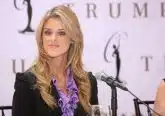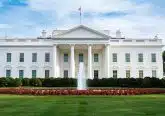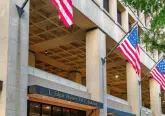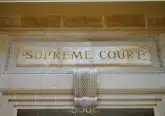Institute for Religious Liberty Asks: What Did the Founders Want, and Why?
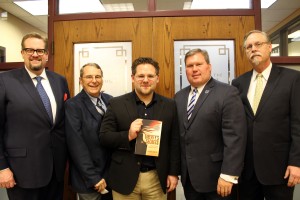
By Gail Finke
Those who missed it – and that includes nearly everyone in the tristate – are in luck. The presentations from the Thomas More College Institute for Religious Liberty symposium last weekend will be available to watch on the college’s website in March.
The two-day even was Institute’s second since its founding in 2015. Its inaugural event, a major presentation last February by Rabbi David Saperstein, the US Ambassador-at-Large for Religious Freedom, and Archbishop Joseph Kurtz, then the president of the United States Conference of Catholic Bishops, drew an interfaith crowd of clergy, heads of religious organizations, students, and the general public.
This year’s symposium drew only dozens of attendees. But unlike the 2016 event, which left many of the hundreds of listeners dissatisfied because of statements made by Rabbi Saperstein that there was no opportunity to question or explore, the two presentations this year were top-notch.
The event was held in two sessions. Friday night began with a presentation by author Joshua Charles followed by a panel discussion with Dr. Hunter Baker of Union University (Jackson, Tenn.) and Dr. J.T. Spence of Thomas More College.
Saturday morning’s event began with a talk by Dr. Kevin Schmiesing of the Acton Institute, followed by a panel discussion led by Charles and featuring Dr. Schmiesing, Brett Greenhalgh of the Cincinnati Ohio Stake (a regional organization of The Church of Jesus Christ of Latter Day Saints), Dr. Kevin Brown of Asbury Univesrsity (Wilmore, Ky.) and Sister of Divine Providence Mary Kay Cramer, a Thomas More College graduate and a midwife who works with immigrants and other women facing economic and social challenges.
Charles, 28, is the author of three books on American history, including “Liberty’s Secrets: The Lost Wisdom of America’s Founders.” A concert pianist who has toured the United States and Europe, he is a public policy Fellow at William Jessup University in Sacramento, as well as a writer and researcher at the Museum of the Bible in Washington, DC.
Religious liberty, Charles said, was clearly understood by the Founding Fathers as protecting religious conviction, which they held as something that came with obligations superseding any that could be commanded by government.
Products of the Enlightenment, Charles said, the Founders “feared a state-sponsored church” as “too Catholic” – equating, as Enlightenment thinkers did, Catholic faith with blind obedience to the pope and the various forms of Protestantism with free choice, freedom to follow the dictates of conscience, and freedom from coercion from any church or state.
Their solution, he said, was to protect religious freedom by separating church from state – to protect churches and believers from the state, not the other way around.
“Either they misunderstood separation of church and state, or we do,” he said.
Bolstering his talk with extensive quotations from letters, documents, and legislation written by the Founding Fathers, Charles said that the architects of our system of government were sometimes unorthodox, but never Deists, as is often claimed by current writers. Even the least conventional of them believed in a personal God, he said, and were well educated in both the history of politics and religion, as well as the philosophical underpinnings of political systems. What Jefferson meant by “the pursuit of happiness” was the Aristotelian understanding that happiness was derived from virtue and goodness, and all the Founders asserted that freedom and happiness were impossible without religion.
Dr. Baker agreed, explaining that two competing views of mankind at the time of the Revolution were that of Locke, who believed that people in a “state of nature” would be peaceful and would order themselves into communities based on the principles of Natural Law, and Rousseau, who taught that without societal control people would revert to a state of savagery.
Locke’s view leads to the idea of a small government, Rousseau’s to one of a powerful and coercive government. Locke’s vision prevailed but, Baker said, is in danger.
“We’re beginning to rely more heavily on the state, and that means we must proceed with caution,” he said, citing Catholic writer Jacques Maritain, who wrote that “man is not made for the state, the state is made for man.” But Locke’s vision requires men who are virtuous, and according to the Founders, religious faith and the freedom to act on that faith in the public square are required to make men virtuous.
Dr. Spence countered, in an argument that tilted toward Rousseu’s view, that a coercive government is necessary to protect liberties. While the Founders worked for an ideal based on “enlightened self-interest,” the immediate failure of the Articles of Confederation demonstrated that strong central power is needed because people must often be forced to do good.
“I believe that we are a more virtuous society now than we have ever been,” he said, pointing to the country’s gradual elimination of social evils including slavery, graft, and child labor. “The trend over our history has been toward stronger government, which we have enacted through the Democratic process.”
Dr. Schmiesing began the Saturday symposium by contrasting Jefferson’s famous letter to the Ursuline Sisters of New Orleans with President Obama’s battle with the Little Sisters of the Poor. Although anti-Catholic sentiment was rife in Jefferson’s day, “was Jefferson more anti-Catholic than Obama?” he asked. “It’s not at all clear.”
The Founders, he said, were eager to avoid the religious strife they associated with the Old World, but what they regarded as “rampant, rambunctious, religious variety” in the New World was tame compared to the proliferation of sects and religions that have followed. To the Founders, he said, the new country was a Christian nation.
“The more pluralism there is, the more difficult the First Amendment M.O. becomes,” he said. “What is coercion, how much can be allowed, how to measure freedom – these are all now up for debate.”
Government methods used to circumvent freedoms, he said, are also changing. The constitution’s “Commerce Clause,” originally meant to keep states from inhibiting inter-state trade, is now used to curtail religious liberty. The 14th Amendment, originally meant to protect individual rights by treating each person impartially, is now applied to groups of people so that laws can treat them differently. And regulations, including healthcare regulations, make incursions on religious liberties.
Schmiesing observed that in England, Henry VIII didn’t outlaw monasteries – he changed property regulations in a way that made monastic life impossible and changed the British landscape, literally and figuratively. “Whether you regulate religious life through economic policy or religious policy, the result is the same,” he said.
Dr. Brown spoke about the need for virtue in business as well as civic life. Americans have long believed that “virtuous behavior is good for business,” he said, a motto that can lead people to assume that all behavior that is good for business is virtuous. This leads to the error of thinking that economic prosperity proves that a people is virtuous, and that religion is unnecessary.
“That seems to make intuitive sense,” he said, “but prosperity doesn’t in itself have any way to evaluate good and bad. It can produce a lot of bad things. If it allows people to do what they choose to do and we do not distinguish between things that people want,” he said, the result can be everything from the degradation of popular culture to the exploitation of the poor and the flourishing of vice.
A vigorous religious presence in public life, protected by religious freedom, helped to make American capitalism the best economic system in the world for lifting people out of poverty and providing individual opportunity, Brown said. Abandoning religion means risking abandoning society to unfettered greed and its degrading effects on workers, families, culture, and law.
Greenhalgh, who is one Institute’s founders, kept his remarks short and made three recommendations for how to best ensure and protect religious freedom – a freedom he asserted is under attack.
First, he said, people of faith must pray. To try to protect religious freedom without asking help from God is useless. Second, we must practice our faith. “What does it matter to protect religious liberty if we don’t practice it?” he asked. And third, we must all work together instead of concentrating on our differences. “If we look to God, look to ourselves, and look to each other,” he said, “the good people of this community, this nation, and this world will be able to protect religious liberty.”
Sister Kramer, the midwife, delivered the least academic of the event’s talks. Unlike the other panelists, she presented a number of related, heart-felt observations rather than a thesis. These included the observation that “religious and economic repression is real and widespread,” and that last year she delivered babies for women from 25 countries, many of them refugees. She concluded with the opinion that religious liberty isn’t something desired by people of any one creed or culture but is “a human claim” for all people of goodwill, but provided no evidence to support her claim.
The event closed with Charles posing questions to panelists of a variety of topics. Greenhalgh, who has been CFO of several international companies, said that macro issues don’t affect businesses nearly as much as a general “movement away from religion” in the West, which he said has affected how workers understand virtue and ethics. “You didn’t used to have to talk about ethics” with workers, he said. “Now it’s a class. We have to teach things we didn’t use to have to teach.”
Dr. Schmiesing said that the new trend toward considering religious liberty as a synonym for bigotry is a “call to action” for all people of faith. Religion, he said, is increasingly looked at as not benefiting society but as causing division, violence, and bigotry. “If religious liberty is considered that way, what’s the benefit of it?” he said. “The Founders thought it was indispensable, and now many people think it’s pernicious. We need to practice the religion our religious liberty affords us. We need to be models of what a religious person is.”
All four panelists demurred when asked to comment on what a Trump presidency could mean for religious liberty. But Dr. Brown said that the question was in some ways the wrong one. “Donald Trump is a reflection, not a catalyst, of change in America. In America, politics are downstream of the people, the state of America, our culture, and our discourse.
“I’m not entirely sure what he will harm or facilitate,” he said. “But if we look to him to be a catalyst, we are mistaken. He’s a reflection.”
The Institute for Religious Liberty at Thomas More College (Crestview Hills, Ky.) is a regional institute headed by Dr. Raymond Hebert, Dean Emeritus. Its partners include Hebrew Union College (Cincinnati), business owners, and area religious leaders. It mission is to featuring internationally recognized speakers from a variety of religious traditions in annual lectures and symposia.










